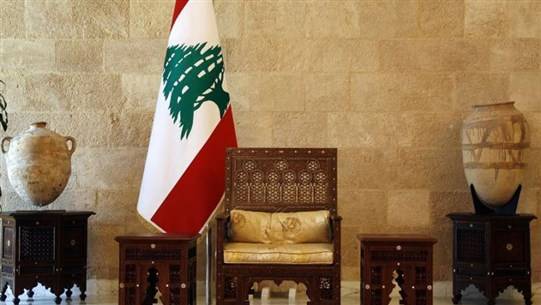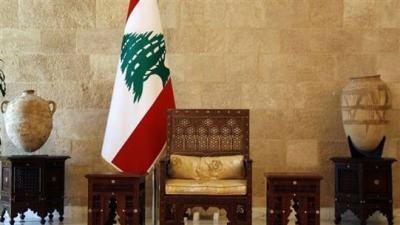The international community expresses concern over the inability to elect a president for the republic, which signals a potentially prolonged presidential void, especially since the fifth election session scheduled for next Thursday, called by the Speaker of Parliament, is unlikely to bring any surprises that could shorten the distance still hindering the election's success and leading to the presidential palace in Baabda. This session is expected to conclude, like its predecessors, with a “paralyzed” election process until further notice, due to the balance of power within the parliament not allowing either side to prevail decisively in the battle.
In anticipation of Thursday's session, most ambassadors from countries involved in the presidential process are convinced that the session will be a futile cycle and that there is a need to search for a way out that allows for the election of a president, provided that they have the approval of the major parliamentary blocs with significant influence to help move the election process away from its current standstill, which is pushing the country further towards catastrophic collapse.
In this context, Western diplomatic sources revealed to Al-Sharq Al-Awsat that ambassadors from several European nations have come to believe that the only way out of this deadly stalemate is through an initiative from effective parliamentary blocs to reach a consensus on a third presidential candidate. This candidate would strategically position themselves between the candidate favored by the majority of opposing forces, MP Michel Moawad, and the candidate agreed upon by the resistance axis, referring to the head of the Marada Movement, Sleiman Frangieh.
The diplomatic sources confirmed that an ambassador from an influential European country in Lebanon sought the opinion of Hezbollah regarding the need to agree on a third candidate; however, Hezbollah preferred to hold off while it continues Hassan Nasrallah's efforts to persuade Gebran Bassil to support Frangieh's candidacy, whose final position he retains for the appropriate time. They noted that what distinguishes Hezbollah from its allies in the presidential battle is its regional perspective on the electoral process, asserting that its agreement on a consensual candidate remains contingent on regional developments. Therefore, they would not concede their position to a local party without receiving political benefits that would allow their ally, Iran, to leverage in improving its conditions in the nuclear negotiations, which remain stalled due to the dispute between Tehran and Washington.
The sources highlighted that the proposal to agree on a third candidate, without mentioning names, is still in the consultation phase. They dispelled rumors of a quietly simmering presidential “cooking” for a trade-off that would result in conceding the presidency to a candidate aligned with the resistance axis—specifically Frangieh—in exchange for appointing a prime minister backed by the majority of the opposition, referencing former Lebanese ambassador to the UN, Nawaf Salam. Local political sources view such rumors about preparations for this kind of trade-off as an open attempt backed by several figures associated with the resistance axis intended to test intentions, despite no one officially adopting it, and it is stated that Salam is unaware of any such arrangements.
The same sources emphasized that electing a president should signify a transition for Lebanon to a new political phase, asserting that the struggle over the presidency extends beyond individuals to the political agenda and the responsibilities assigned to the president, extending to the future prime minister and the ministerial statement of his government. Therefore, it remains premature to transition the presidential battle from the current “break the bone” stage to the search for a consensual president, implying that there is a necessity to fill the presidential void by electing a president at any cost, as if the country is in its best condition and not drowning in a multitude of crises.
However, some are betting on the element of time, which could exert pressure if the disruption of election sessions continues, potentially opening the door to the search for a third candidate. Otherwise, the parliamentary spectacle could extend indefinitely, putting pressure on the deputies regardless of who is obstructing the presidential election process.
Thus, it currently appears that there is an impossibility in reaching a consensual candidate without bringing in an international and regional lever to encourage the deputies to elect a president sooner rather than later, even though conditions are not yet ripe for the international community to intervene in the disruptive process to pave the way for reconciling the differences among the parliamentary blocs to meet each other halfway in rescuing Lebanon from the depths of collapse, due to the lack of substantial assistance needed for its rescue, which is conditional on a set of criteria that must be met, even if it extends beyond achieving the presidential election to reforms aimed at rehabilitating the country and placing it back on the international radar.




